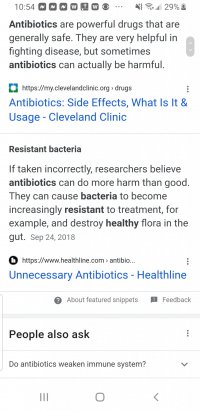andrewlee224
Member
- Joined
- Oct 4, 2020
- Messages
- 79
I have an antibiotic called Lymecycline which apparently is some tetracycline derivative. I don't know how good it is but I assumed it may be OK since it belongs to the cycline class which have a good reputation around here.
I've started taking it and I feel much better right away, I actually have a sort of a sense of wellbeing which I suspect healthy people feel all the time, but I just forgot how it feels not being battered by endotoxins and latent infections.
So my question is, how long would it be relatively safe to take? I've read some bad reports about tetracyclines causing black thyroid, black teeth, or lowering mitochondrial respiration over longer term so I'm a bit wary. Would 2 weeks be relatively safe? I bet quite a few people on this forum have relevant experience.
I've started taking it and I feel much better right away, I actually have a sort of a sense of wellbeing which I suspect healthy people feel all the time, but I just forgot how it feels not being battered by endotoxins and latent infections.
So my question is, how long would it be relatively safe to take? I've read some bad reports about tetracyclines causing black thyroid, black teeth, or lowering mitochondrial respiration over longer term so I'm a bit wary. Would 2 weeks be relatively safe? I bet quite a few people on this forum have relevant experience.

